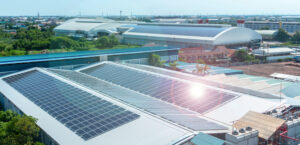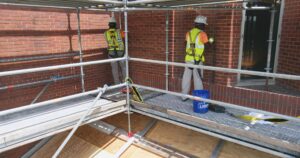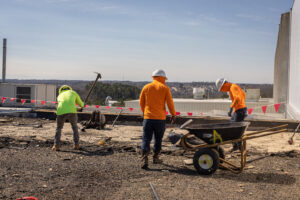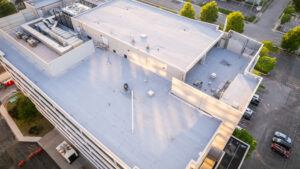The roof is arguably the most critical part of any commercial building. It protects the structure, ensures the safety of its occupants, and can even influence energy efficiency. In Raleigh, where the weather is highly humid and the area gets significant rainfall, having a robust and reliable roof is essential. However, the challenge many face is how to achieve top-tier quality without exhausting their budget. This article will guide you through 10+1 strategies to ensure you get the best bang for your buck.
1. The Importance of Research and Planning

Just as a sailor wouldn’t dare venture into turbulent waters without a reliable compass, so should one approach a roofing project—with thorough research and meticulous planning. The stakes are high; a misstep can lead to costly repairs, energy inefficiencies, or even structural damage. Here’s a deeper dive into why planning and research are paramount:
1. Determining Specific Needs
Every building has its own unique narrative, encapsulated in its architectural design, historical significance, and foundational strength. Moreover, the roofing requirements of a warehouse contrast sharply with those of a boutique hotel or a tech startup’s office. Recognizing the primary function of the building is instrumental in guiding material selection and design considerations. By delving into factors such as location, age, and design, tailored roofing solutions can be identified. These solutions not only enhance the aesthetic appeal but also bolster the functionality and longevity of the building.
2. Understanding Local Climate
The weather spectrum in Raleigh is a medley of conditions. The sweltering summers contribute to excessive heat buildup, while the cold winters can usher in issues like ice dams or frost damage, not to mention the unpredictable storms. Material selection is crucial here. Some materials are adept at reflecting heat, making them a boon for hot climates, while others offer superior insulation, which is ideal for colder regions. By comprehending the diverse climate of Raleigh, preventive measures such as proper insulation, water runoff systems, or UV-resistant coatings can be integrated, thereby mitigating potential weather-induced damages.
3. Budgeting with Precision
The financial blueprint of a roofing project extends beyond just the material and labor costs. It encompasses permits, potential structural upgrades, and contingency funds for unforeseen challenges. Conducting a cost-benefit analysis is pivotal, where the initial costs are weighed against the long-term benefits. For instance, investing in a slightly pricier energy-efficient material could translate to significant savings on energy bills over the years. Maintaining a transparent communication channel with your contractor regarding the budget can avert unexpected expenses. This fosters adjustments, recommendations, and ensures both parties are aligned, making for a project that not only stands the test of time but is also financially prudent.
In essence, a successful roofing project is a culmination of detailed research, strategic planning, and collaboration. By giving due importance to each phase, you not only ensure the structural integrity and longevity of your roof but also optimize financial resources, ensuring a project that stands the test of time without breaking the bank.
2. Hire a Local Contractor

Choosing the right contractor can make or break your roofing project. While there are numerous contractors available, both locally and nationally, opting for a local expert offers distinct advantages that can significantly impact the outcome of your project.
1. In-depth Local Knowledge
Weather Insights: Raleigh, with its unique climatic challenges, requires specialized knowledge. Local contractors have firsthand experience with the region’s weather patterns, from its scorching summers to its frosty winters, and even the sporadic storms. This experience equips them to recommend materials and designs best suited for Raleigh’s climate.
Building Codes & Regulations: Every region has specific building codes and regulations. Local contractors are well-versed with Raleigh’s codes, ensuring your roofing project adheres to all local guidelines, avoiding potential legal hassles or redoing certain aspects of the project.
2. Reputation is Everything
Community Ties: Local contractors have a direct stake in the community. Their business thrives on local references, word-of-mouth, and community goodwill. This connection ensures they deliver quality work, as their reputation is on the line with every project.
Accessibility: Should any issues arise post-completion, local contractors are easily accessible. Their proximity ensures prompt responses to maintenance calls or any concerns you might have.
3. Economic Advantages
Local Material Sourcing: With established relationships with local suppliers, local contractors often procure materials at discounted rates. This cost-saving can be passed on to you, ensuring quality materials without the hefty price tag.
Reduced Logistical Costs: Hiring a contractor from outside Raleigh can add significant logistical costs, from transportation of materials to accommodation for the crew. Local contractors eliminate these additional expenses, making the project more cost-effective.
4. Vetting is Vital
Due Diligence: While there are numerous advantages to hiring locally, it’s essential to conduct thorough background checks. Ask for references, peruse online reviews, and check their licensing and insurance validity.
Portfolio Review: Before finalizing a contractor, review their past projects. This will give you insights into their quality of work, design sensibilities, and attention to detail.
3. Bulk Purchasing of Materials
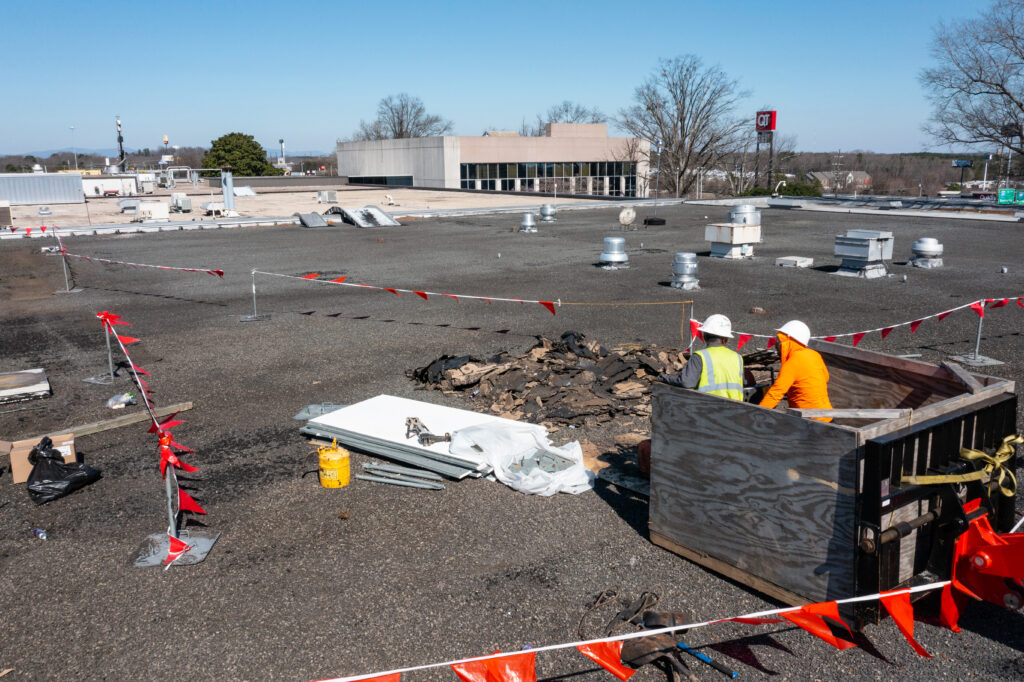
Economies of Scale & Negotiation Power
Leveraging economies of scale stands out as a primary advantage of bulk purchasing. When faced with large orders, suppliers often offer attractive price reductions. Such volume-based discounts can significantly cut down the material costs, making your roofing project more economical. Furthermore, a substantial order boosts your negotiation power, paving the way for discussions beyond just the price—think favorable payment terms, extended warranties, and thorough after-sales support.
Quality & Consistency
Roofing demands both quality and consistency. Bulk purchasing ensures you get both. Certain naturally sourced materials, like wood or stone, can vary between batches. Buying in bulk guarantees materials from the same batch, ensuring uniformity in both appearance and performance. With a hefty investment at stake, suppliers are more attentive, ensuring each unit meets top quality standards, minimizing the risk of subpar materials.
Logistical Advantages
The logistical benefits of bulk purchasing are hard to overlook. Instead of managing multiple deliveries, each with its challenges, you can coordinate a single, consolidated delivery. This approach not only streamlines logistics but also ensures uninterrupted project timelines. Additionally, transportation, a significant cost in roofing projects, can be optimized. Fewer deliveries mean reduced costs, and with a large order, you might even negotiate reduced or free transportation.
Sustainability & Eco-Friendly Practices
In today’s world, sustainability is paramount. Bulk purchasing is in line with eco-friendly practices. Fewer deliveries mean fewer trips, reducing the carbon footprint. Moreover, bulk orders typically use consolidated packaging, cutting down waste compared to individual packaging for smaller orders.
4. Embracing Technological Advancements in Roofing

Embracing technological advancements in roofing can lead to superior results, both in terms of quality and cost-effectiveness.
Digital Design and Modeling
Gone are the days when roofing designs were sketched out on paper. Today, advanced software allows for 3D modeling of roofing projects. This digital approach offers a realistic visualization, enabling stakeholders to make informed decisions, tweak designs, and anticipate challenges before actual construction begins.
Drones for Site Surveys
Drones have emerged as invaluable tools for roofing contractors. They can conduct aerial surveys of a site, capturing high-resolution images and videos. This bird’s-eye view aids in accurate measurements, damage assessments, and identifying potential hazards, all without the need for manual labor and in a fraction of the time.
Smart Roofing Materials
Innovation in materials has led to the development of ‘smart’ roofing solutions. These materials can adapt to environmental conditions. For instance, there are thermochromic tiles that change color based on temperature, reflecting sunlight on hot days and absorbing heat during colder periods. Such innovations not only enhance energy efficiency but also extend the lifespan of the roof.
Solar Integration
With the push towards green energy, roofs are no longer just protective barriers. They are potential energy generators. Modern roofing can seamlessly integrate solar panels, turning rooftops into powerhouses that generate clean energy, leading to reduced electricity bills and a smaller carbon footprint.
Automated Installation Techniques
Robotics and automation have started to play a role in roofing installations. Automated machines can lay down roofing materials with precision, reducing human error and speeding up the installation process. While the initial investment in such machinery might be significant, the long-term benefits in terms of time saved and increased accuracy are substantial.
The fusion of technology and roofing offers a promising future. By staying updated with the latest technological trends and integrating them into roofing projects, contractors can deliver enhanced value, ensuring roofs that are not just sturdy and durable, but also energy-efficient, eco-friendly, and in sync with the modern world’s demands.
5. Prioritizing Regular Maintenance and Inspections
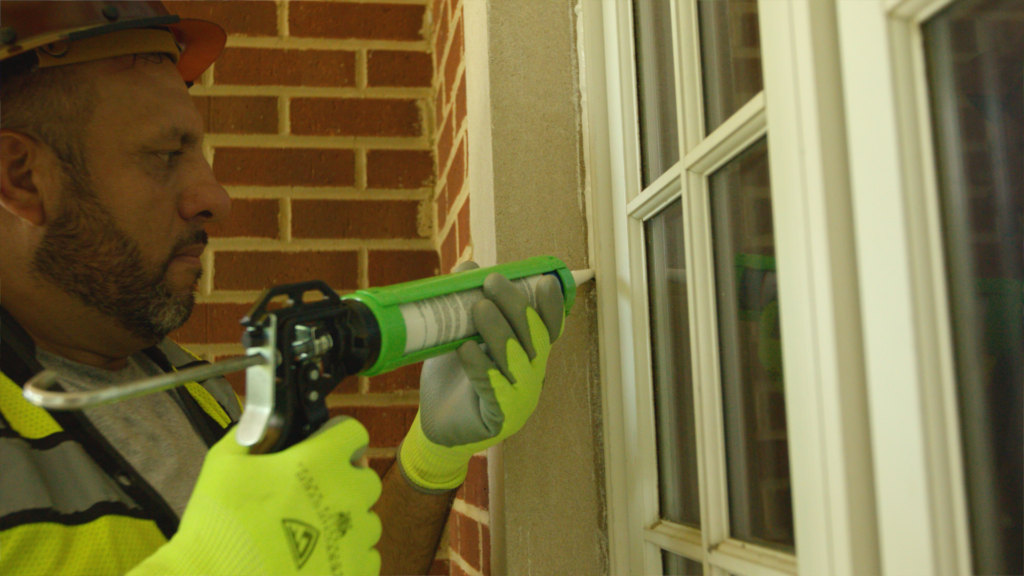
The longevity and performance of a commercial roof are not solely determined by the quality of its installation or the materials used. Regular maintenance and timely inspections play an equally vital role in ensuring that the roof remains in optimal condition, serving its purpose effectively and efficiently.
The Importance of Routine Checks
Even the most robust roofing systems are susceptible to wear and tear. Factors like changing weather conditions, debris accumulation, and natural aging can gradually degrade a roof’s quality. Routine checks help in early detection of such issues, allowing for timely interventions and preventing minor problems from escalating into major concerns.
Professional Inspections
While routine checks can be carried out by building maintenance staff, it’s essential to schedule periodic professional inspections. Roofing experts possess the knowledge and tools to conduct a thorough examination, identifying underlying issues that might go unnoticed during regular checks.
Maintenance as a Cost-saving Strategy
Investing in regular maintenance might seem like an added expense, but in the long run, it’s a cost-saving strategy. Addressing issues promptly can prevent extensive repairs or even premature replacements. Moreover, a well-maintained roof enhances energy efficiency, leading to savings on energy bills.
Extending Roof Lifespan
Every commercial roofing system has an expected lifespan. However, without proper care, this lifespan can be significantly shortened. Regular maintenance ensures that the roof remains in its best condition, potentially extending its life beyond the expected duration.
Maintaining Aesthetics
Beyond functionality, a roof contributes to a building’s aesthetics. Over time, roofs can become stained, discolored, or even infested with unwanted growths like moss or algae. Regular cleaning and maintenance ensure that the roof remains visually appealing, enhancing the overall look of the commercial establishment.
Safety Considerations
A neglected roof can become a safety hazard. Water leakages can lead to structural damages, mold growth, or even electrical issues. By prioritizing maintenance, such risks are minimized, ensuring the safety of the building’s occupants.
6. Roofing Warranties and Guarantees
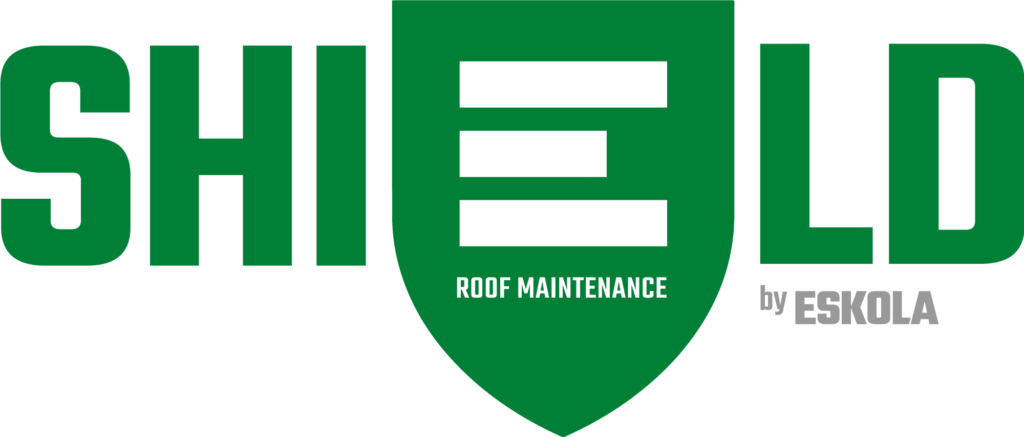
Warranties and guarantees serve as a safety net for building owners and managers. They offer protection against unforeseen issues, ensuring that the investment made in the roofing system is secure. However, understanding the nuances of these warranties is crucial to ensure that one can fully benefit from them.
Types of Roofing Warranties
Material or Manufacturer’s Warranty: This warranty covers defects in the roofing material itself. If the material fails or shows signs of premature aging, the manufacturer will bear the cost of replacement or repair. However, it’s essential to note that these warranties often only cover the materials, not the labor or installation.
Workmanship or Contractor’s Warranty: This warranty is provided by the roofing contractor and covers errors in installation. If problems arise due to faulty installation, the contractor is responsible for the repairs. The duration of this warranty can vary, but it’s typically shorter than the material warranty.
System Warranty: A comprehensive option, the system warranty covers both the materials and the installation. It’s a combined warranty that ensures any defect, whether from the material or the installation, is addressed.
Understanding the Fine Print
Duration: Warranties come with varying durations. It’s crucial to know how long you’re covered and for which specific issues.
Transferability: If you plan to sell the property, check if the warranty is transferable to the new owner.
Maintenance Clauses: Some warranties require the building owner to undertake regular maintenance. Failing to adhere to these clauses can void the warranty.
Exclusions: Not all issues may be covered. Understand what’s excluded, whether it’s specific types of damages, acts of God, or damages due to external factors.
7. Recycle Old Roofing Materials for a Sustainable Future in Raleigh
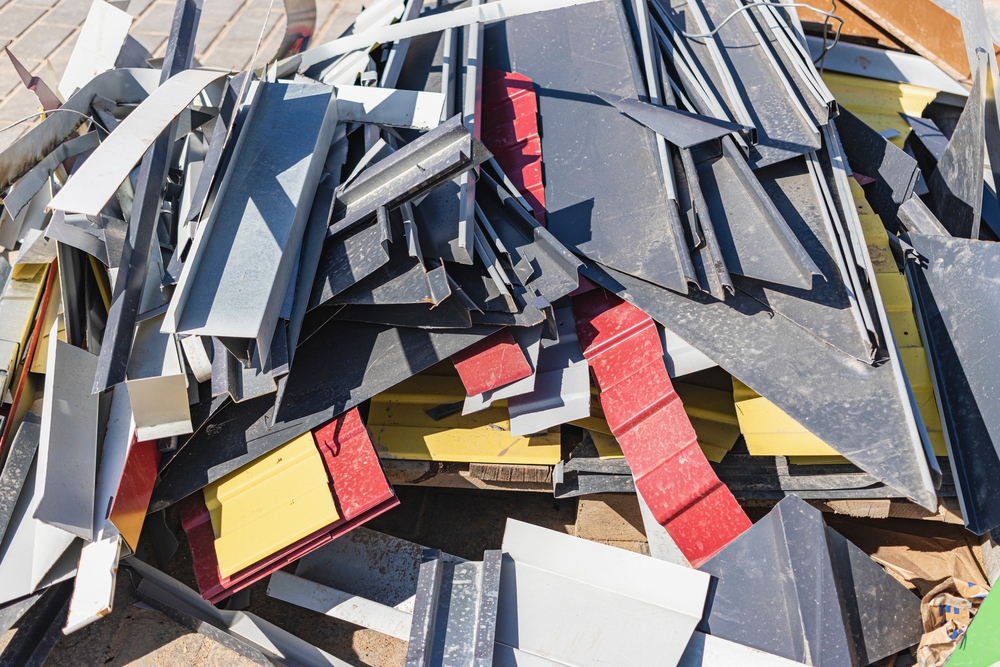
Sustainability is emerging as a cornerstone of responsible construction. As commercial establishments look to refurbish or replace their roofing systems, the emphasis is shifting towards recycling old roofing materials. This approach not only aligns with global eco-friendly trends but also offers tangible benefits to businesses.
Monetary Returns from Recycling
One of the immediate advantages of recycling old roofing materials is the potential for cost savings. Numerous recycling centers, especially within Raleigh, are keen on purchasing discarded roofing materials. Metals, in particular, fetch a good price. By selling these materials, businesses can recoup a portion of their investment, effectively reducing the net expenditure on the new roofing system.
A Greener Footprint
The environmental implications of indiscriminate dumping are well-documented. Landfills are filling up at an alarming rate, and the construction industry is a significant contributor. By opting to recycle old roofing materials, businesses can drastically reduce their contribution to this growing problem. Moreover, the recycling process, especially for materials like metal, is often more energy-efficient than mining and processing raw materials. This reduced energy consumption further diminishes the environmental impact.
Breathing New Life into Old Materials
Beyond mere recycling, there’s a world of upcycling opportunities. Certain roofing materials, like wood or vintage tiles, can be repurposed into a myriad of new products. From rustic furniture pieces to decorative wall accents, these upcycled products can add a unique charm to commercial spaces. For establishments in Raleigh, known for its blend of historic and contemporary architecture, such upcycled additions can resonate with the city’s character, offering a blend of nostalgia and style.
Supporting Local Economy
By choosing to recycle or upcycle, businesses can also support the local economy. Many recycling centers and upcycling workshops are local enterprises, and by engaging with them, businesses can contribute to Raleigh’s economic ecosystem.
Recycling old roofing materials is not just an environmentally conscious decision; it’s a statement of intent. It signifies a commitment to sustainability, a nod to the local culture, and a smart financial move. For businesses in Raleigh, it’s a step towards a future where commercial success and environmental responsibility walk hand in hand.
8. The Advantages of Roof Coatings in Raleigh's Climate
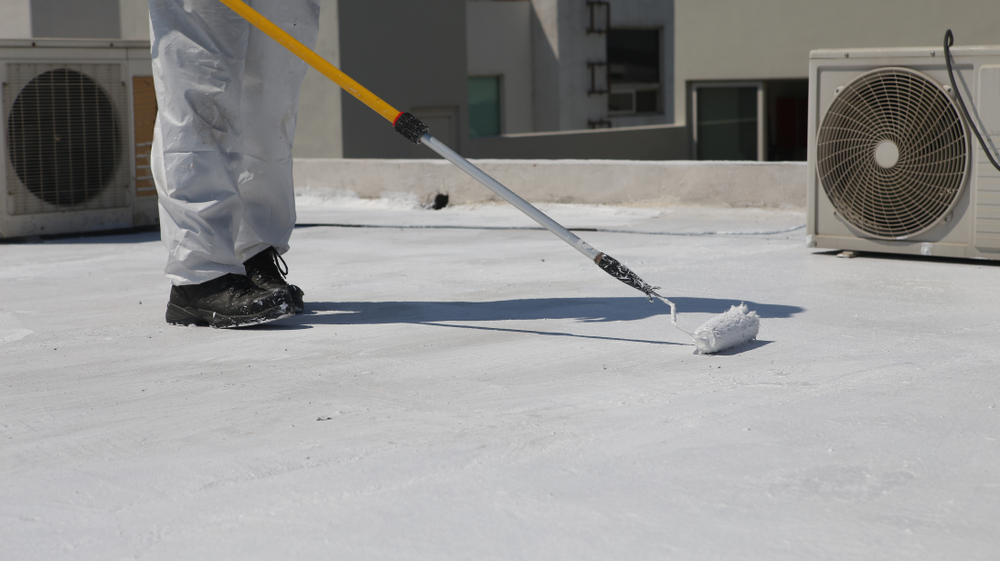
In Raleigh, where the weather can swing from scorching summers to rainy seasons, the importance of a robust roofing system cannot be overstated. One of the most effective ways to enhance the durability and efficiency of existing roofs is through the application of roof coatings. These coatings, often overlooked, can be a game-changer for commercial establishments looking to optimize their roofing investments.
Barrier Against Raleigh’s Weather
The primary function of roof coatings is to serve as a defensive layer against the elements. In Raleigh, where the sun can be particularly harsh, these coatings act as a barrier, preventing direct UV exposure, which can degrade roofing materials over time. Additionally, they offer resistance against rain and wind, ensuring that the roof remains watertight and free from potential leak points.
A Budget-friendly Roofing Solution
Roof replacements can be a significant investment, both in terms of time and money. For commercial establishments operating on tight budgets, roof coatings offer a cost-effective alternative. By applying a coating, the lifespan of the existing roof can be extended by several years, delaying the need for a complete overhaul. This not only saves money but also reduces the downtime associated with extensive roof replacements.
Tailored for Every Roof
One of the standout features of roof coatings is their versatility. Regardless of the underlying roofing material – be it metal, asphalt, bitumen, or any other substrate – there’s a suitable coating available. This ensures that every roof, irrespective of its composition, can benefit from the protective and efficiency-enhancing properties of roof coatings.
9. Price Negotiation with Raleigh's Roofing Contractors
Ensuring that roofing projects are both high-quality and cost-effective requires more than just selecting the right materials or designs; it necessitates effective negotiation with contractors. By mastering this art, businesses can ensure that they get the best value for their investment.
Informed Decision Making through Market Research
The foundation of any successful negotiation is information. Before entering discussions with contractors, it’s imperative to have a clear understanding of the current market rates for roofing projects in Raleigh. By being aware of the average costs, materials used, and the quality benchmarks, businesses can ensure that they aren’t overpaying. This research not only provides a reference point for negotiations but also signals to contractors that you are a well-informed client.
Leveraging the Power of Bulk
Size matters in the world of construction. If your roofing project covers a large area or if you represent a business with multiple properties in Raleigh, this can be a significant advantage. Contractors often provide volume discounts for extensive projects, as it guarantees them more extended engagement and higher overall revenue. Even if the current project is of moderate size, discussing potential future collaborations can provide negotiation leverage.
Capitalizing on Off-Peak Discounts
Every industry has its peak and off-peak seasons, and roofing in Raleigh is no exception. If your project timeline is flexible, consider scheduling the work during a contractor’s less busy periods. Contractors are more likely to offer discounts during these times to secure business. This approach can lead to substantial savings without compromising on quality.
Building Trust through Open Dialogue
Negotiation isn’t just about driving prices down; it’s about arriving at a mutually beneficial agreement. By being transparent about budget limitations, quality expectations, and any other specific requirements, businesses can foster a sense of trust with contractors. When contractors understand a client’s constraints and priorities, they are often more willing to offer solutions that cater to those needs, leading to a win-win scenario.
10. Tapping into Grants and Tax Incentives for Roofing in Raleigh
Governments, both local and federal, along with various institutions, are offering a plethora of incentives to encourage eco-friendly building practices. For those looking to embark on roofing projects, these incentives can lead to significant financial savings while also contributing to a greener future.
Navigating the World of Grants
Grants are essentially funds that don’t need to be repaid, making them an attractive option for businesses. In Raleigh, several grants cater specifically to roofing projects that incorporate sustainable technologies or materials. Whether it’s for green roofing systems, the integration of solar panels, or the use of recycled materials, these grants can offset a portion of the project costs. It’s essential to research available grants, understand their criteria, and apply in a timely manner.
Unlocking Tax Benefits
Tax incentives are another avenue through which businesses can realize savings. Roofs that enhance energy efficiency, reduce heat islands, or contribute to reduced energy consumption might qualify for tax deductions or credits. These incentives can significantly reduce the effective cost of the roofing project. However, navigating the tax landscape can be complex. It’s advisable to consult with a tax professional or accountant familiar with Raleigh’s local and state tax codes to ensure all potential benefits are maximized.
Reaping the Rewards of Rebates
Local utility companies, recognizing the long-term benefits of energy-efficient constructions, often offer rebates to businesses. For instance, a roofing system that leads to reduced energy consumption, be it through better insulation or solar energy harnessing, might qualify for such rebates. These rebates, while varying in value, can contribute to making the roofing project more cost-effective. Engaging with local utilities, understanding their rebate programs, and ensuring the roofing project aligns with their criteria can lead to tangible financial benefits.
11. Timing Your Roofing Projects Right in Raleigh
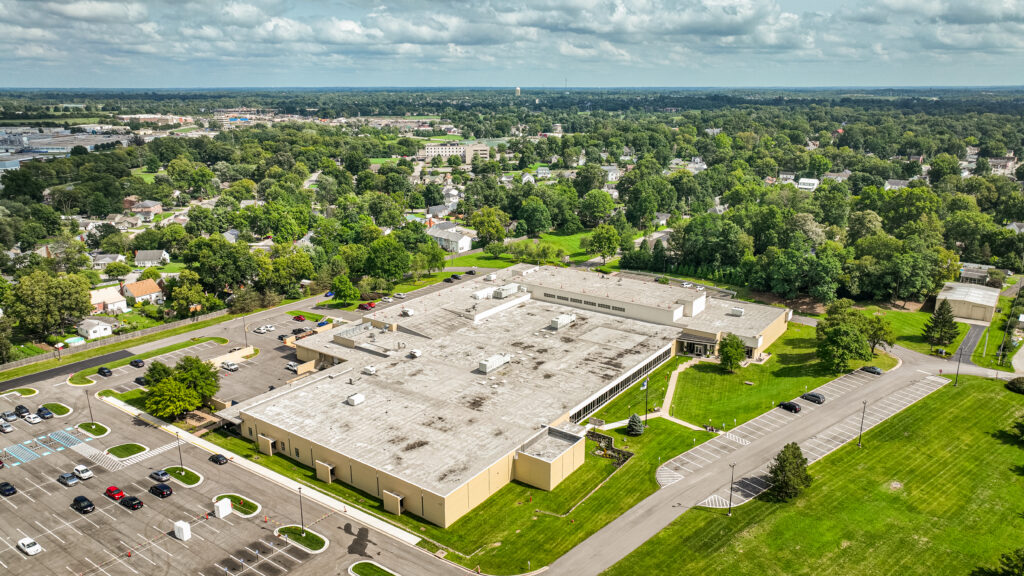
In Raleigh, with its distinct seasons and varying weather patterns, the right timing can make a significant difference in terms of costs, efficiency, and the overall quality of the roofing job.
The Advantage of Off-Peak Seasons
Every industry has its busy periods, and for roofing contractors in Raleigh, there are times of the year when their services are in high demand. Conversely, during their off-peak seasons, they might have fewer projects lined up. This lull can be advantageous for businesses. Contractors are often more willing to negotiate prices and offer discounts during these quieter periods to secure work. By planning your roofing project during such times, you can potentially achieve substantial cost savings.
Navigating Raleigh’s Weather Patterns
Raleigh’s weather is a tapestry of sunny days, rainy spells, and the occasional snowfall. Each of these conditions presents its own set of challenges for roofing projects:
- Rainy Seasons: Wet conditions are far from ideal for roofing. Not only can it delay work, but moisture can also compromise the integrity of certain roofing materials and installations. It’s best to avoid starting a roofing project when prolonged rain is forecasted.
- Snow and Cold: Extremely cold conditions can affect the efficiency of workers and the pliability of certain roofing materials. Snow can also hinder work, making installations and repairs cumbersome.
- Optimal Weather Windows: Mild, dry weather is the gold standard for roofing projects. Not only does it allow for smooth operations, but it also ensures that materials like adhesives set properly and that installations are of the highest quality. In Raleigh, the transitional periods between seasons often offer such optimal conditions.
Achieving the best commercial roof in Raleigh on a budget hinges on thorough research, meticulous planning, and aligning with local expertise. Local contractors offer invaluable insights into Raleigh’s unique climate and building codes, alongside economic advantages. Ensuring a rigorous vetting process when selecting a contractor, and maintaining open communication throughout the project, are pivotal steps towards a durable, aesthetically pleasing, and cost-effective roofing solution that stands the test of time.

